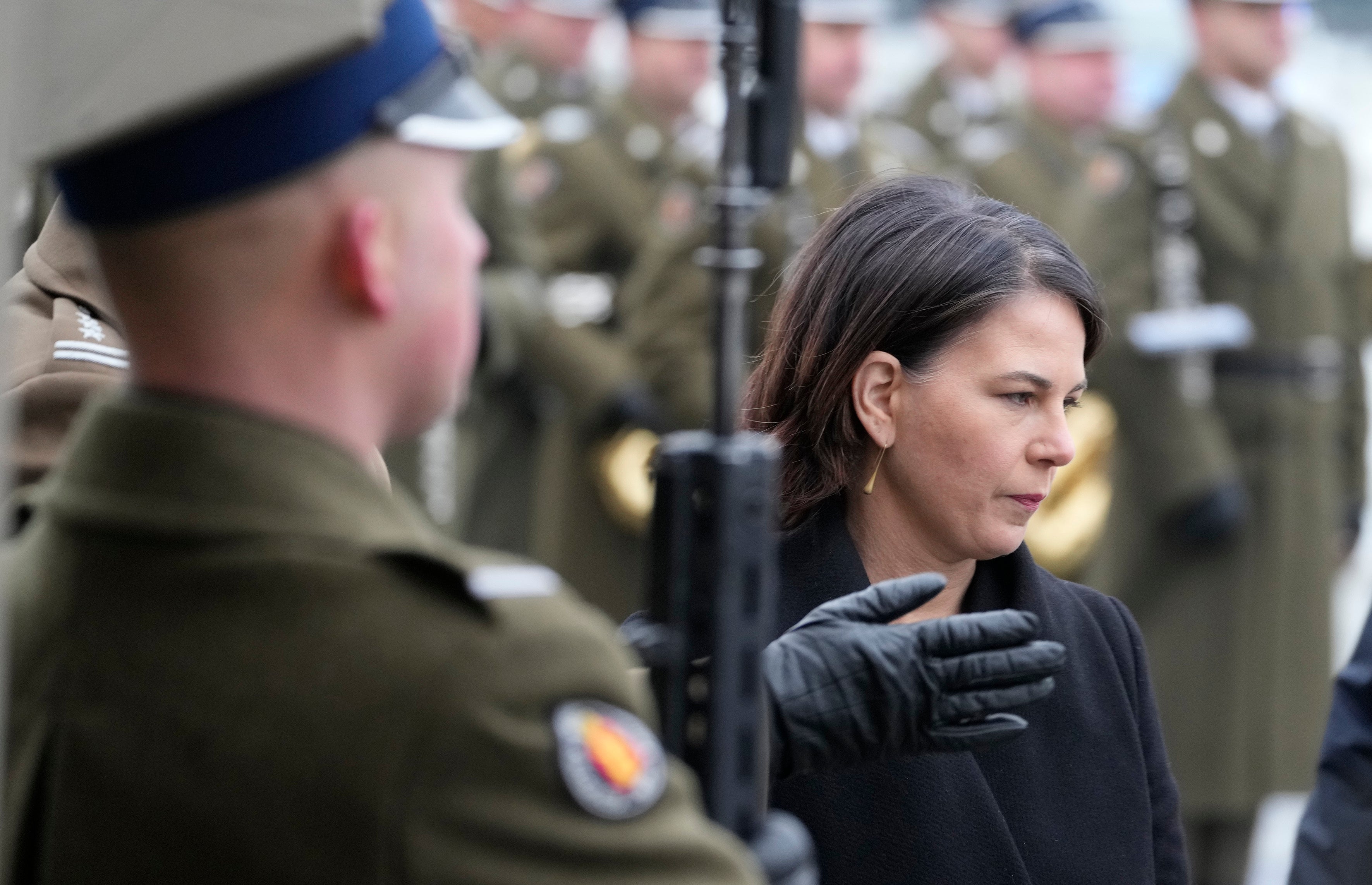Stance on Russia, China a test for new German government
Germany has found itself facing a series of challenges in its relations with Russia and China since taking office last month that are testing the new government’s foreign policy mettle

Your support helps us to tell the story
From reproductive rights to climate change to Big Tech, The Independent is on the ground when the story is developing. Whether it's investigating the financials of Elon Musk's pro-Trump PAC or producing our latest documentary, 'The A Word', which shines a light on the American women fighting for reproductive rights, we know how important it is to parse out the facts from the messaging.
At such a critical moment in US history, we need reporters on the ground. Your donation allows us to keep sending journalists to speak to both sides of the story.
The Independent is trusted by Americans across the entire political spectrum. And unlike many other quality news outlets, we choose not to lock Americans out of our reporting and analysis with paywalls. We believe quality journalism should be available to everyone, paid for by those who can afford it.
Your support makes all the difference.Germany has found itself facing a series of challenges in its relations with Russia and China since taking office last month that are testing the new government’s foreign policy mettle.
Among them are Moscow’s military buildup near Ukraine and the diplomatic fallout from a court verdict finding that the Russian government was behind the 2019 killing of a Chechen dissident in Berlin China’s pressure on a fellow European Union member has also prompted Germany to take sides against one of its biggest trading partners.
The issues came to the fore during a flying visit that German Foreign Minister Annalena Baerbock made Wednesday to Washington, intended to highlight the common stance between her government and the United States on Russia. She arrived back in Germany on Thursday.
But amid the show of unity, differences have emerged, too, with its close trans-Atlantic ally and within the German government itself.
During last year’s election to succeed long-time German leader Angela Merkel, Baerbock campaigned on a foreign policy program that advocated a firmer line toward Moscow and Beijing on security and human rights issues. Her rival Olaf Scholz who became Germany's chancellor after his Social Democratic Party won the vote, took a noticeably softer stance on Russia.
Baerbock’s party, the Greens, has also been skeptical of Nord Stream 2, a recently completed pipeline to bring more natural gas from Russia to Germany that isn’t yet in use.
The Greens’ position is driven partly by environmental concerns about continued reliance on fossil fuels. But of all major German parties it is also closest to the stance of the United States, which has warned that the pipeline risks increasing Europe’s dependence on Russian gas.
That skepticism isn’t shared by Scholz, however, whose center-left Social Democrats have lobbied strongly for the pipeline. With the Social Democrats the biggest party in the coalition government, it looks unlikely that Berlin will block gas from flowing through the pipeline unless Russia launches a military strike against Ukraine.
Eyebrows were also raised this week when the German government announced that Scholz’s foreign policy adviser would meet his French and Russian counterparts to discuss the Ukraine situation. Some observers claim Scholz is keen to cut Baerbock’s foreign ministry out of direct talks with Moscow — a suggestion German diplomats have strenuously rejected.
Baerbock drew the Kremlin’s ire last month, when she expelled two Russian embassy officials after a Berlin court ruled that Moscow was behind the daylight slaying of an ethnic Chechen man in the German capital two years earlier. Russia responded by expelling two German diplomats from Moscow.
Baerbock, who had never held government office before becoming Germany’s top diplomat, vowed during the election campaign to pursue a foreign policy led by interests and values.
This, and her pledge to make the defense of democracy a topic of Germany’s presidency of the Group of Seven leading economies this year, puts Baerbock on an awkward footing with China.
On Wednesday, the 41-year-old’s remarks during a news conference in Washington with U.S. Secretary of State Antony Blinken reinforced those policy views, and likely drew gasps from German businesses back home who rely on exports to China.
Asked whether Berlin backs U.S. criticism of China’s human rights record, Baerbock said Germany supports proposals “that products resulting from forced labor, resulting from grave human rights violations, that these products cannot enter the European market.”
“And the same holds true when it comes to solidarity for Lithuania,” she said, referring to a spat between the small EU nation and Beijing. Lithuania’s decision to let Taiwan open an office in the country infuriated China, which considers the island part of its territory.
The United States has long advocated for a stronger stance against its rival China, but during Merkel's 16 years in office Germany often sought to balance its corporate interests against human rights concerns. Baerbock drew a clearer line this week.
“We as Europeans stand in solidarity at Lithuania’s side,” she said.